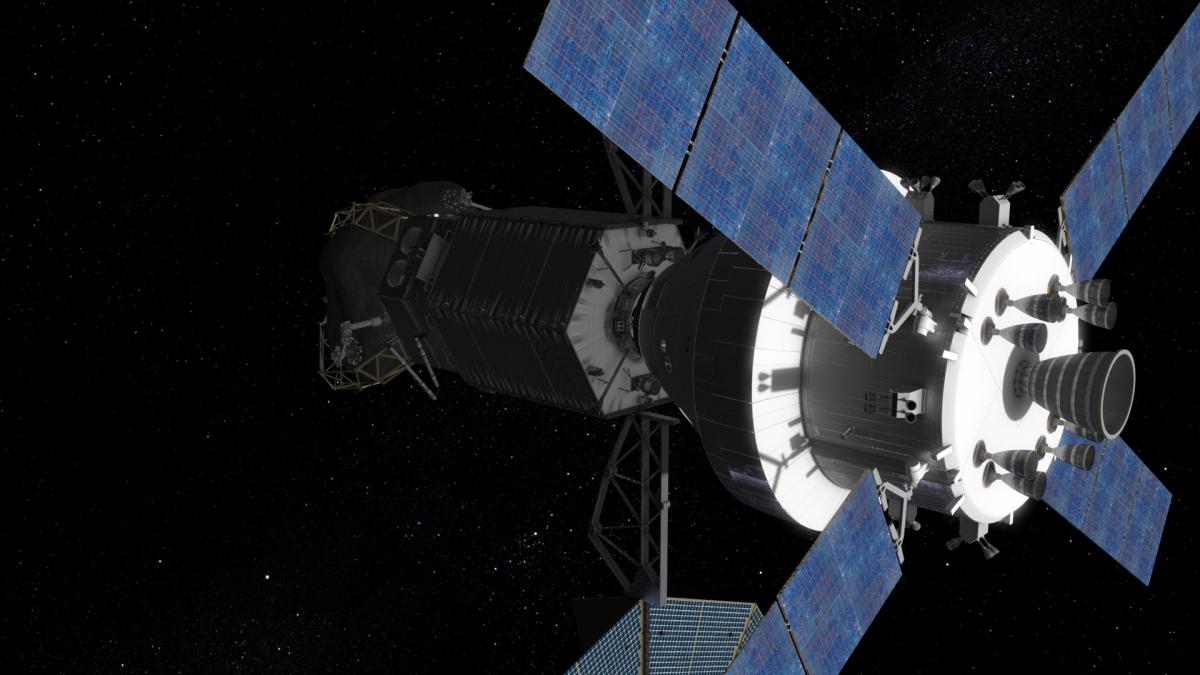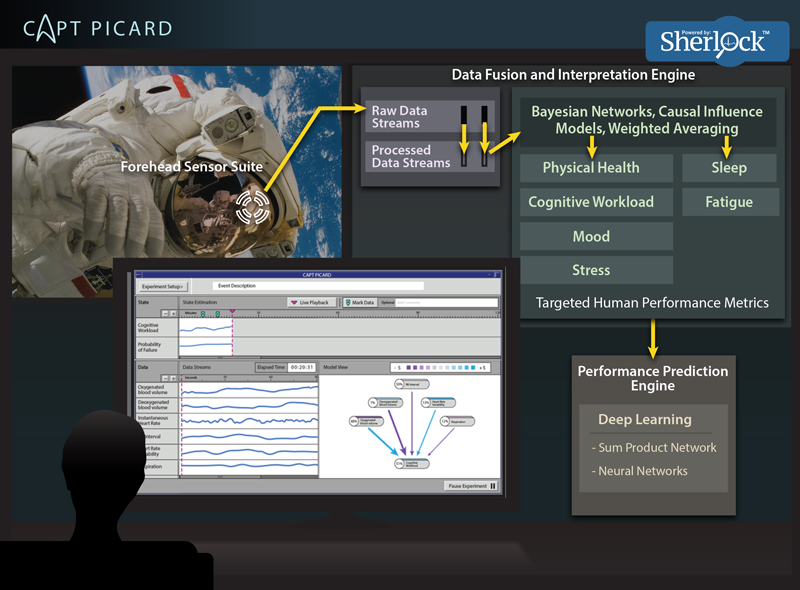CAPT PICARD is built on Sherlock™, our open and extensible software and hardware platform that provides a unified, end-to-end solution
“Under CAPT PICARD, we’re refining, evaluating, and validating an unobtrusive system to measure, assess, and predict cognitive workload.” – Dr. Bethany Bracken, Principal Investigator on our CAPT PICARD system
Charles River Analytics developed a system for Cognitive Assessment and Prediction to Promote Individualized Capability Augmentation and Reduce Decrement (CAPT PICARD). CAPT PICARD supports testing and engineering (T&E), allowing engineers to quantitatively and continuously so engineers can evaluate the cognitive demands of new tools and systems, as well as how they affect task performance.
Measuring Astronauts’ Cognitive Workload
Conducting workload assessment during developmental testing of a new system means you can identify features and designs that result in high workload early in the process when redesigns are more feasible and less costly.

Orion spacecraft with two crew inside approaches to dock with the Asteroid Redirect Vehicle (Image source: NASA.gov). We used the measurements from our CAPT PICARD system to determine how best to display astronauts’ health and status on the spacecraft.
Sherlock Platform
CAPT PICARD uses Sherlock, our open and extensible software and hardware platform that provides a unified, end-to-end solution to rapidly prototype applications that collect, analyze, visualize, and reason about human physiological, neurological, and behavioral states.
Applying R&D to Training
The same technology that allows CAPT PICARD to guide development of new systems. CAPT PICARD can help trainers accurately evaluate the cognitive and physiological demands of the tools that will be used during a mission, and determine how to augment training to minimize the effect these demands have on task performance and accuracy.

